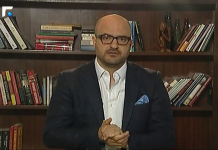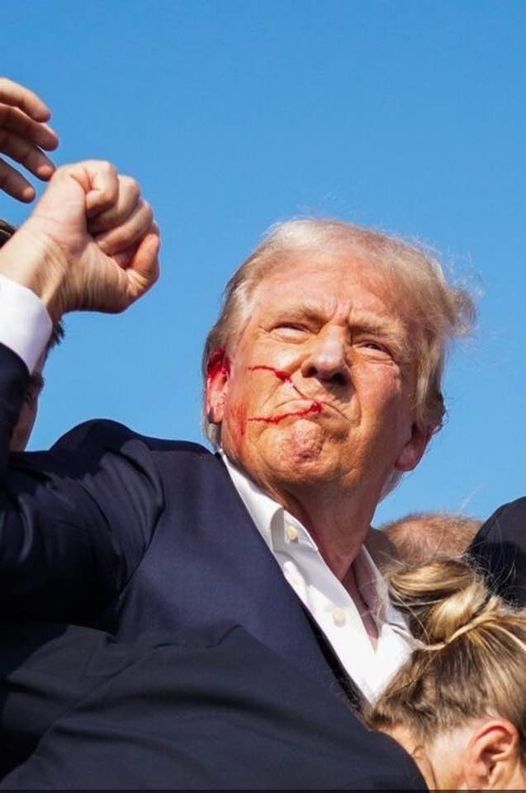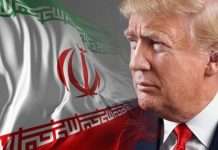On Lebanon’s parliamentary elections: A statelet is not destined
Ali Al-Amin/Al Arabiya/March 08/18
Candidate nominations for the upcoming parliamentary elections in Lebanon closed on Tuesday at midnight, where nominees compete to secure their spot in the 128 seats in parliament. What distinguishes these elections is that they be will be held after the current parliament, elected in 2009, extended its term twice. It’s thus been nine years since the last parliamentary elections were held. Note that the official parliamentary term in Lebanon is only four years.
What also distinguishes this year’s elections that are scheduled for May 6 is that they are void of political discourse. Meaning that the alliances imposed by the proportional representation system, which will be adopted for the first time in the history of Lebanese elections, and the nature of the division of electoral districts, make the competition limited in most constituencies to a sectarian nature. Hezbollah’s dominance over the Shiite sect allows it to win any parliamentary elections taking place in areas which are predominantly Shiite. This is not only because of its supporters, but also because logic stipulates that competition between the armed and unarmed ends in the former’s victory
The exception here is the Shiite sect, as the two major Shiite parties (Hezbollah and the Amal Movement), control the results that they want, and that is winning most Shiite seats in Parliament, as well as the ability to infiltrate the Sunni sect in some electoral districts. When examining the adopted proportional representation system and the nature of electoral districts, one can see that the results are in favor of the Shiite alliance, specifically Hezbollah. The latter is the party that first decided to impose this law, although it is common belief that Free Patriotic Movement leader and Foreign Minister Gebran Bassil was the one who promoted it and succeeded in imposing it. Hezbollah, however, is the primary beneficiary here. But why?
Hezbollah’s dominance
First of all, we should pay attention to the fact that Hezbollah is the only armed force that operates outside the framework of the country’s security and military institutions. It can even be said that it has power over all the official security and military entities. This weapon is not an idle element in any electoral process and any electoral law. When it comes to Shiite communities, the power of arms dominates the scene under the pretext of “resistance”.
Only Hezbollah has the ability to place its opponents in the category of the “enemies of the resistance”. This accusation in itself, and in the absence of an effective role by the state as a protective element of society, especially in the Shiite environment, makes objecting to Hezbollah’s policies or opposing them in elections come at a high price.
Parties or figures that seek to confront Hezbollah are simply aware that whoever thinks of competing with them within the Shiite community may face negative consequences such as accusations of treason or collaboration with an ‘enemy’ Arab or a western state. This threat will not only be directed at the opposing candidate, but also to anyone who votes for them and is aware of the cost of deviating from Hezbollah or publicly supporting its opponents. A voter’s livelihood may thus be threatened and they can be prevented from receiving the most basic rights.
There are many examples of individuals and entities within the Shiite community showcasing how Hezbollah does not tolerate any opposition. Their specialty is fabricating and installing security files against their rivals, and then accuse them of being employed by the enemy. This is what happened with Sheikh Hassan Mesheimsh, a cleric who opposes Hezbollah and who was imprisoned for four years over accusations of working for the enemy. This is a false accusation. But Hezbollah showed a great capability of fabricating files via official institutions without appearing in the picture. But everyone knows that they are the ones who drive and manage state institutions to serve their interests.
Other prominent figures have been attacked in Hezbollah strongholds because of political differences, including Sayyid Ali al-Amin, who was expelled from his city and dismissed from his job as a mufti because he opposed Hezbollah’s policies. A similar situation happened with Ahmad Kamel al-Asaad, a Shiite anti-Hezbollah politician, to the extent that one of his supporters was killed. Hashem al-Salman was also killed three years ago, when he and other Asaad supporters tried to protest in front of the Iranian embassy over the Syrian conflict. Salman was killed after a group of thugs opened fire on protestors. Due to Hezbollah’s dominance over the state, this case was never investigated or taken to court.
From this viewpoint of violence, Hezbollah succeeded in suppressing any opposition within its Shiite community. Some may ask aren’t there differences between Hezbollah and the Amal movement? No, because the alliance of the Shiite duo has been the only constant in Lebanon’s political life since 1992. This alliance’s strength is not due to local elements but is a result of Syrian tutelage. The latter actually imposed this alliance during the 1992 elections and until 2005. When the Syrian army exited Lebanon, Iran managed to strengthen this alliance thus solidifying Hezbollah’s legitimacy. Meanwhile, the Amal movement, headed by Nabih Berri, accepted the new situation, i.e. to be committed to the requirements of the Iranian strategy in exchange of maintaining its presence in the political scene and guaranteeing its share in the governance of domestic quotas.
Room for hope
Hezbollah’s dominance over the Shiite sect allows it to win any parliamentary elections taking place in areas which are predominantly Shiite. This is not only because of its supporters, but also because logic stipulates that competition between the armed and unarmed ends in the former’s victory. Therefore, the March 14 coalition’s victory in the 2009 parliamentary elections did not affect Hezbollah at all. Hezbollah’s possession of weapons was sufficient to end any meaning to its rivals’ electoral victory. Its arsenal turned the equation in its favor.
But if that’s the case, why does Hezbollah care about electoral law today?
There are two reasons behind Hezbollah’s interest and enthusiasm towards the law’s details. First is that this law, which adopts the proportional representation, allows Hezbollah to infiltrate other Lebanese sects as it aspires to have allies and followers from different factions. The new law makes them capable of doing so; while other Lebanese parties within the Shiite communities do not have this advantage for several reasons, mainly due to Hezbollah’s dominance via its arms.
The second reason, which is political, is that this law has helped Hezbollah impose non-political electoral alliances in most districts. This made Hezbollah’s secretary general say that there are no political alliances in the upcoming elections and that those who politically agree with one another can compete in the elections thanks to the nature of the law.
The results concluded by Hezbollah in advance are not definite. Elections’ results can still be surprising no matter how much Hezbollah can control them due to its power of arms. Holding elections is positive and necessary, even when the conditions of fair competition are absent and even when those who have power over state institutions can forge them. The Lebanese people’s optimism is thus limited to the elections’ ability to conclude with the election of some MPs who freely represent them and speak their voice. This is enough as long as the criterion of the minority and majority in Parliament is pointless due to the influence of Hezbollah’s arms. A Lebanese voice must continue to speak out in favor of the state project so that a “staelet” does not become the country’s destiny.
الانتخابات النيابية في لبنان: الدويلة ليست قدرا
علي الأمين/العرب/06 آذار/18
تفاؤل لدى اللبنانيين بقدرة الانتخابات على الإتيان ببضعة نواب قادرين على التقاط نبض الشعب اللبناني والتعبير عنه بحرية، وثمة صوت لبناني يجب أن يظل صادحا بمشروع الدولة حتى لا تصبح الدويلة قدرا.
باب الأمل مفتوح
يُغلق باب الترشحات إلى الانتخابات النيابية في لبنان منتصف ليلة الثلاثاء ويرجح أن يتجاوز عدد المرشحين 500 مرشح يتنافسون على 128 مقعدا، هو عدد مقاعد مجلس النواب.
ما يميّز هذه الانتخابات أنها تأتي بعد تمديدين للبرلمان الذي انتخب عام 2009، أي بعد تسع سنوات على آخر انتخابات نيابية، علما وأن ولاية البرلمان هي أربع سنوات، كما أن ما يميز انتخابات هذا العام، والتي يفترض أن تجري في السادس من مايو المقبل، أنها تجري بلا خطاب سياسي، أي أن التحالفات التي يفرضها اعتماد النظام النسبي لأول مرة في تاريخ الانتخابات اللبنانية وطبيعة تقسيم الدوائر الانتخابية، تجعلان الصراع والتنافس مقتصرين في معظم الدوائر على تنافس داخل الطوائف، باستثناء الطائفة الشيعية التي يحكم طرفا الثنائية الشيعية (حزب الله – حركة أمل) على النتيجة التي يريدانها، أي الفوز بمعظم المقاعد الشيعية في البرلمان بالإضافة إلى القدرة على إحداث بعض الخروقات ولا سيما في الطائفة السنّية.
كما أنّ هذا القانون انطلاقا من طبيعة الدوائر والنظام المعتمد، لا يحتاج المراقب للكثير من الجهد ليخلص إلى أن نتائجه تصب في صالح تحالف الثنائي الشيعي، وحزب الله على وجه التحديد، ذلك أن حزب الله كان المقرر الأول في فرض هذا القانون، على الرغم من أن الشائع هو أن رئيس التيار الوطني الحر وزير الخارجية جبران باسيل هو الذي روّج له ونجح في فرضه، لكن الواقع يقول إن حزب الله هو المستفيد الأول من هذا القانون. لكن لماذا هو المستفيد؟
يجب الانتباه بداية إلى أن حزب الله هو القوة المسلحة الوحيدة في لبنان من خارج مؤسسات الدولة الأمنية والعسكرية، بل يمكن القول إنه يمتلك سطوة على كل الأجهزة الأمنية والعسكرية الرسمية، وهذا السلاح ليس عنصرا مهملا في أي عملية انتخابية وأي قانون انتخابي، إذا ما تحدثنا عن داخل البيئة الشيعية، فسطوة السلاح قائمة وذلك بذريعة المقاومة، فلحزب الله وحده القدرة على وضع خصومه في خانة أعداء المقاومة، وهذا الاتهام بحد ذاته وفي ظل غياب فعلي لدور الدولة كعنصر حماية للمجتمع خصوصا في البيئة الشيعية، يجعل من الاعتراض على سياسة حزب الله أو مواجهته انتخابيا أمرا مكلفا لأي جهة أو شخصية تسعى لمواجهة الحزب انتخابيا، لإدراك هؤلاء أو من يفكر بمنافسته داخل الطائفة الشيعية أنه سيصبح عرضة لكل الاحتمالات السيئة ومنها الاتهام بالعمالة سواء للعدو الإسرائيلي أو لدولة عربية أو غربية، وهذا بحد ذاته يشكل عنصر تهديد ليس للمرشح فقط، بل للناخب أيضا الذي يدرك أن كلفة التمايز عن حزب الله أو التعبير عن تأييد خصومه سيعني تعرضه لتهديدات تبدأ من التهديد في أرزاقه، إلى محاصرته ومنعه من نيل أبسط حقوقه في مؤسسات الدولة.
وثمة أمثلة عديدة لأفراد أو جهات داخل البيئة الشيعية، تظهر كيف أن حزب الله لا يتسامح مع أي معارضة تواجهه داخل الطائفة الشيعية، لا سيما في قدرته على تركيب ملفات أمنية ضد خصومه واتهامهم بالعمالة للعدو. وهذا ما حصل مع الشيخ حسن مشيمش المعارض لحزب الله، وهو رجل دين أودع السجن لأربع سنوات بتهمة العمالة للعدو وهي تهمة باطلة، وقدرة حزب الله هنا تتميز بأنه قادر على تركيب الملفات من خلال مؤسسات رسمية من دون أن يظهر في الصورة، لكن الجميع يدرك أنه هو من يحرك ويدير أجهزة الدولة المعنية لصالحه. كما يمكن الإشارة إلى شخصيات أخرى تعرضت لاعتداءات في مناطق نفوذ حزب الله، فقط لكونها على خلاف سياسي معه مثل العلامة السيد علي الأمين الذي تم طرده من مدينة صور وإقالته من وظيفة الإفتاء فقط لكونه معارضا لسياسة حزب الله على وجه التحديد. وشيء من هذا القبيل جرى مع أحمد كامل الأسعد، لا بل تم قتل أحد مناصريه، وهاشم السلمان قبل ثلاث سنوات حين كان مع عدد من مناصري الأسعد يحاولون الاحتجاج أمام السفارة الإيرانية بسبب الحرب السورية، فكان جزاؤهم قتل هاشم السلمان برصاص مجموعة من البلطجية الذين انهالوا بالضرب وبإطلاق النار على المحتجين، وهذه القضية التي لم تصل إلى القضاء ولا جرى التحقيق فيها، ودائما بقوة حزب الله وسطوته على الدولة.
النتائج التي حصّلها حزب الله مسبقا من خلال القانون الحالي للانتخابات النيابية، ليست محسومة، والانتخابات مهما بلغت قدرة حزب الله على التحكم بنتائجها نتيجة سطوة السلاح على المجتمع وعلى مؤسسات الدولة، ستبقى عرضة للمفاجآت
من هذا المنطلق، أي من السلاح وسطوته على المجتمع والدولة، نجح حزب الله في جعل حالات الاعتراض في البيئة الشيعية مكتومة، بسبب كلفة الاعتراض بل التمايز. ثمة من قد يسأل أو ليس التمايز موجودا بين حزب الله وحركة أمل؟ يمكن الإجابة بالنفي ذلك أن تحالف الثنائية الشيعية والتي صارت أحادية، هو الثابت الوحيد في الحياة السياسية اللبنانية منذ عام 1992 حتى اليوم، وقوة هذا التحالف ليست ناشئة من عناصر محلية بل هي نتاج الوصاية السورية التي فرضته في انتخابات عام 1992 وحتى عام 2005، وعند خروج الجيش السوري من لبنان تولت إيران تثبيته، وتحول إلى أحادية شيعية ثبتت مرجعية حزب الله وقبلت حركة أمل برئاسة نبيه بري بالوضعية الجديدة أي أن تكون ملتزمة بمتطلبات الاستراتيجية الإيرانية، في مقابل المحافظة على وجودها في المعادلة السياسية وضمان حصتها في معادلة المحاصصة الداخلية. أي أن لسان حال حركة أمل ورئيسها “نواليكم في الاستراتيجيات الإيرانية مقابل المحافظة على حصصنا اللبنانية الداخلية”.
هذه السطوة لحزب الله على الطائفة الشيعية، تتيح له الفوز بأي انتخابات نيابية تجري في مناطق ذات غالبية شيعية، ليس بسبب ما لديه من جمهور المؤيدين فحسب، بل لأن منطق الأمور يقول إن المنافسة بين مسلح وأعزل من السلاح، ستكون نتائجها لحامل السلاح، وهذا العنصر الأهم والحاسم، وكذلك كان الحال على المستوى الوطني، إذ لم يشكل فوز قوى 14 آذار في الانتخابات النيابية عام 2009 أي تأثير على حزب الله، فوجود السلاح بحوزته كان كفيلا بإنهاء أي معنى للفوز الانتخابي لمنافسيه، والسلاح هو الذي قلب المعادلة لصالح حامل السلاح أي حزب الله.
إذا كان الحال كذلك، فلماذا يهتم حزب الله بقانون الانتخاب اليوم؟
الاهتمام بتفاصيل قانون الانتخاب وطبيعته له سببان يجعلان الحزب متحمسا لهذا القانون، الأول أن هذا القانون الذي يعتمد النظام النسبي يتيح لحزب الله اليوم اختراق الطوائف اللبنانية الأخرى، إذ يطمح حزب الله في أن يكون لديه حلفاء أو أتباع من الطوائف الأخرى والقانون الحالي يتيح له هذه القدرة، فيما تفتقدها الأطراف اللبنانية الأخرى في الدائرة الشيعية لأسباب عدة لكن أبرزها وجوهرها سطوة سلاحه.
أما السبب الثاني فيتصل ببعد سياسي، ذلك أن هذا القانون ساعد حزب الله على جعل الانتخابات عبارة عن تنافس انتخابي ويفرض تحالفات انتخابية غير سياسية في معظم الدوائر، وهذا ما جعل أمين عام حزب الله يقول إن الانتخابات المزمعة ليست فيها تحالفات سياسية وأن المتفقين سياسيا يمكن أن يكونوا متنافسين في الانتخابات بسبب طبيعة القانون.
النتائج التي حصّلها حزب الله مسبقا من خلال القانون الحالي للانتخابات النيابية، ليست محسومة، والانتخابات مهما بلغت قدرة حزب الله على التحكم بنتائجها نتيجة سطوة السلاح على المجتمع وعلى مؤسسات الدولة، ستبقى عرضة للمفاجآت، ذلك أن مجرد إجراء الانتخابات هو أمر ضـروري وإيجابي، ولو كـانت شروط المنافسة الشريفة غير متوفرة، ولو كانت قدرة التزوير متاحة لمن يمتلك السطوة والقوة والتحكم بالمؤسسات، لكن ثمة استحقاق يجعل التفاؤل لدى اللبنانيين مقتصرا على قدرة الانتخابات على الإتيان ببضعة نواب لبنانيين قادرين على التقاط نبض الشعب اللبناني والتعبير عنه بحرية، وهذا كاف طالما أن معيار الأقلية والأكثرية في مجلس النواب لا معنى له في ظل سطوة السلاح، لكن ثمة صوت لبناني يجب أن يظل صادحا بمشروع الدولة حتى لا تصبح الدويلة قدرا.


















